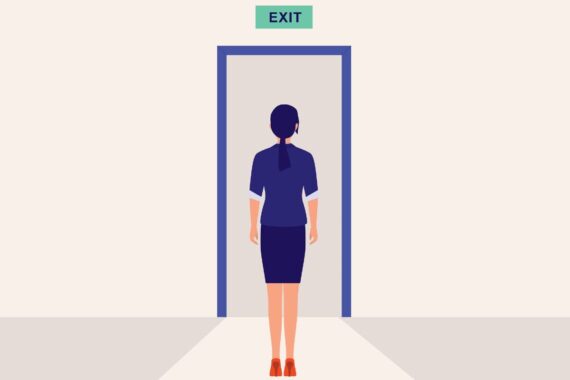NHS England to end two GP retention schemes

NHS England has announced it will end two schemes designed to retain GPs through professional development.
The commissioner said that the current general practice fellowship and supporting mentors schemes will close on 31 March.
The fellowship scheme provided practices with funding to allow their newly-qualified GPs to spend a session a week doing CPD, plus a sum for administrative fees – totalling £10,000.
Meanwhile, the mentoring scheme has funded experienced GPs up to £289 a week to provide mentorship to younger GPs for a session.
But in its latest primary care bulletin, NHS England said both schemes would end. The commissioner added that it would ‘continue to invest in GP retention’ with more information and guidance to follow.
The bulletin said: ‘The current national GP retention schemes General Practice Fellowships and Supporting Mentors will close on 31 March 2024. GPs and nurses who join the scheme before that date will continue to be supported, until they complete their two-year programme.
‘NHS England will continue to invest in GP Retention in 2024/25. More information and guidance will follow in early 2024.’
Pulse has asked NHS England why it has decided to end the schemes but not yet received an answer.
Nursing leaders have suggested ICBs may decide to invest in retaining the GPN fellowship scheme but NHS England has not provided clarification to Pulse’s sister title Nursing in Practice.
RCGP chair Professor Kamila Hawthorne said that the decision to end the GP retention schemes was ‘both surprising and very disappointing’, particularly at a time when ‘we need to be doing absolutely everything we can to keep GPs in the workforce’.
She told Pulse: ‘We’re unaware of any immediate plans to replace them. If this is going ahead, we need to understand the rationale and what comes next to make sure we can retain as many GPs as possible in the workforce.
‘It is vital that newly qualified GPs are given the opportunity to settle into a practice and learn the ropes – we hope that if these schemes are being wound down, then there are plans to replace them with something better and easier to access across the whole of England.’
She also added that there is a need to see ‘immediate efforts’ to expand retention initiatives, not to stop the ones currently on offer, so that the NHS can ‘sustain its workforce and meet increasing demand’, and guarantee that ‘hard-earned practical experience’ is passed on to the next generation of GPs.
Doctors’ Association GP spokesperson Dr Steve Taylor told Pulse that if NHS England ‘truly believed in community care for patients and GP retention’ it would not be closing two schemes aimed at retention of GPs.
He said: ‘The current policies of NHS continue to fail GP practices. With core funding reduced in real terms and below inflation increases in funding continuing, this will have a significant impact on safe and effective primary care.
‘This at a time of increased loss of younger GPs and increased demand, fails again to demonstrate leadership within NHSE and more broadly Government planning.’
Under the two-year fellowship scheme:
- Practices were given £7,200 to provide backfill GP cover, plus £3,000 for ‘programme delivery’, including administration and CPD costs
- The CPD was focused on ‘PCN portfolio working, learning and development post-registration, supporting nurses and GPs to take up substantive roles, understand the context they are working in’;
- Newly qualified GPs undertook ‘rotational placements within or across PCNs to develop experience and support transition into the workforce’.
The mentorship scheme allowed more experienced GPs to train as ‘mentors’, resulting in a industry recognised qualification.
In October, an NHS England director suggested that offering GPs more opportunities to have portfolio careers will help with recruitment and retention.
As part of a major investigation on recruitment and retention earlier this year, GPs have told Pulse that taking on portfolio roles could help retaining younger fully-trained GPs, as it stops them from leaving the profession entirely or emigrating.
Portfolio careers
What is the right portfolio career for you?

Related Articles
READERS' COMMENTS [6]
Please note, only GPs are permitted to add comments to articles













The schemes have been scrapped because you do not have to train to be a G.P.———–how many more times do I have to say it?
JGM – you can say it as often as you like – you’d still be wrong. Move into the 21st century please.
JMHO
Kissy kissy
opens the door for PAs, pharmacist and every noctor under the sun to be funded to work for roles they have no training or expertise in and help with patient safety all round. Good one.
Such a shame. Currently mentoring 3 new to practice GP’s who have found this support very useful- I previously mentored 2 who went on to partnership. Why spend all the energy and money setting this up to stop it less than 5 years later. Crazy waste.
Shame. Funny how as this scheme ends, I find myself mentoring one of said Noctors in primary care. We are in the primary care version of the Great Replacement, and this one isn’t a far right conspiracy psychosis, it’s real.
NHS England is the cover name for the worlds leading organisation specialising in failure – it is rare they actually identify a named person for these far fetched ludicrous decisions as to do this would clarify who has contributed to this record breaking habitual unbroken cycle of failure, incompetence, financial waste, untold misery to staff an patients and continuing ineptitude only matched by its favourite offspring -the PCNs !